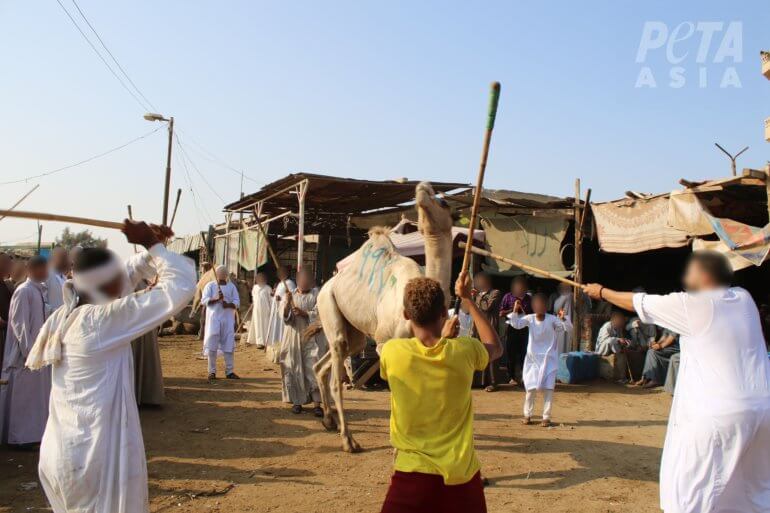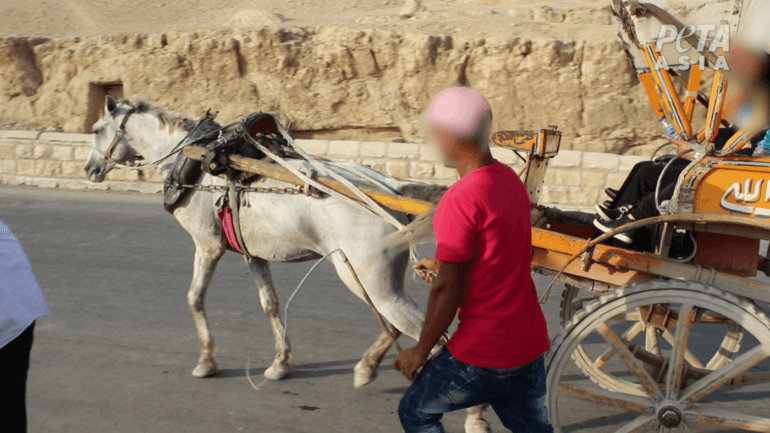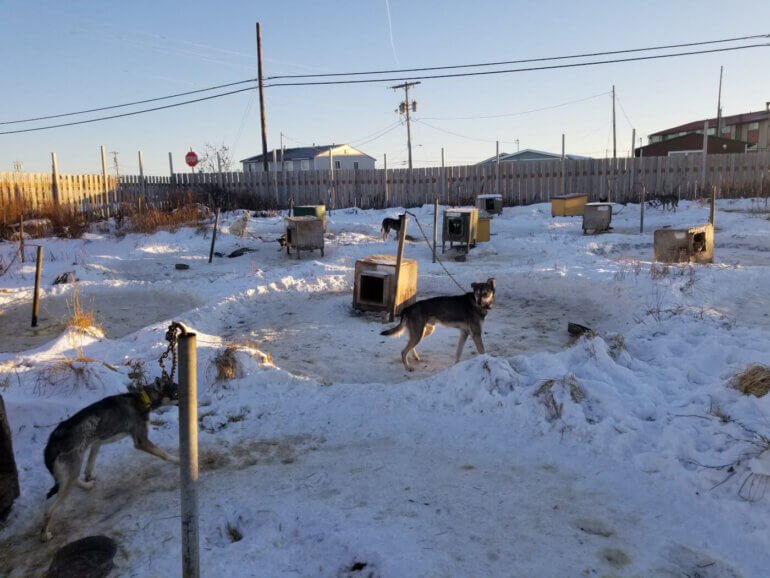Animal Rides on Holiday
At popular destinations worldwide, animals are exploited by unsuspecting tourists. Elephants, horses, camels, donkeys, mules, and dogs are forced to carry tourists under threat of punishment. Investigations by PETA entities around the world show that these animals suffer in extreme temperatures, endure thirst, sustain wounds, and are often mercilessly beaten.
Elephant Rides
Whether born in captivity or taken from their families in nature, elephants do not carry humans willingly on their backs. They do so only because they have been psychologically traumatised. “Trainers” tie them down and beat and scare them with bullhooks to break their spirits. This makes them fearful and teaches them to obey humans in order to avoid pain. These elephants often develop post-traumatic stress disorder.
Elephants in captivity are deprived of exercise and spend prolonged periods standing on hard surfaces, both of which are major contributors to serious foot problems and arthritis. They’re routinely denied nutritious food, adequate water, and necessary veterinary care, especially for their troubled feet.
Elephant camps throughout Cambodia, Thailand, Vietnam, and other Asian countries are notorious for duping the public into believing that they’re sanctuaries. In truth, the abusive “training” methods elephants experience at these facilities are often the same as those at more explicitly entertainment-focused businesses. Selfies with elephants, bathing, painting, or any direct-contact activity are only made possible as a result of this cruel training.
Camel Rides
Camels are exploited for tourist rides in many parts of the world, including at popular holiday destinations. PETA Asia’s investigation into this practice in Egypt showed that the animals are often denied access to food, water, and shade. At the notorious Birqash camel market in Cairo, which supplies camels for rides at tourist spots, animals were seen being severely beaten with sticks. Some were later sold for meat.
Horse, Donkey, and Mule Rides
Horses, donkeys, and mules are often forced to haul visitors on their backs at holiday sites in the blistering heat. PETA Germany uncovered the anguish of donkeys, horses, and mules used as “taxis” on the Greek island of Santorini. Approximately 100 such animals are forced to transport tourists up more than 500 steps to the old town of Firá, even though a cable car has been operational nearby for decades. They are beaten, and even though they carry heavy loads, they are denied access to water and given practically no respite from the hot Mediterranean sun.
Many animals incur deep wounds and abrasions from ill-fitting saddles, particularly around the girth. Because they are continually irritated by the saddles, the wounds do not get the opportunity to heal properly, which can lead to long-term pain. Even night does not bring rest for donkeys in Santorini, as they’re then forced to carry heavy bags of rubbish.
Horse-Drawn Carriages
Horses forced to pull carts or carriages suffer from ailments such as damaged teeth and sores on their bodies, and they may collapse from exhaustion in hot weather. PETA Asia’s investigation in Egypt revealed that horses weren’t provided with any breaks and were beaten and whipped into giving endless rides in the heat, even as their knees buckled and they collapsed. Workers in Giza were seen continuously beating a horse who had collapsed while being forced to haul a tourist in a carriage. They didn’t stop until she finally managed to stand back up. Eyewitnesses reported that she was quickly put back to work, even though she had been severely injured by the fall.
Dog-Sledding
Tourist dog-sledding operations keep the cruel dog-racing industry afloat beyond the racing season. From the age of 3 to 6 months, dogs used for sledding are kept constantly chained, unable to play or socialise with other dogs. They can develop stereotypic, neurotic behaviour as a result. A PETA US eyewitness exposé of kennels in Alaska operated by former champions of the Iditarod dog-sled race showed rampant suffering. Dogs were found chained to barrels, forced to stand on frozen ground despite having raw, injured feet, and a three-legged dog was seen tethered, struggling to move around. The operators allegedly denied injured and ill animals veterinary care, and dogs reportedly experienced vomiting, bloody diarrhoea, and open, oozing wounds.
What You Can Do
Animals are living, feeling individuals, just like us. We can never justify using them as “taxis” when so many alternatives, such as electric scooters, buses, bicycles, and cars are available.
Until we stop paying money to ride animals on holiday, the abuse will continue. Pledge never to take an animal or horse-drawn carriage ride, and ask your friends and family to do the same, so that this cruelty can be brought to an end.
Visit our Action Centre to sign urgent action alerts to help horses, donkeys, and elephants exploited for tourist rides.




